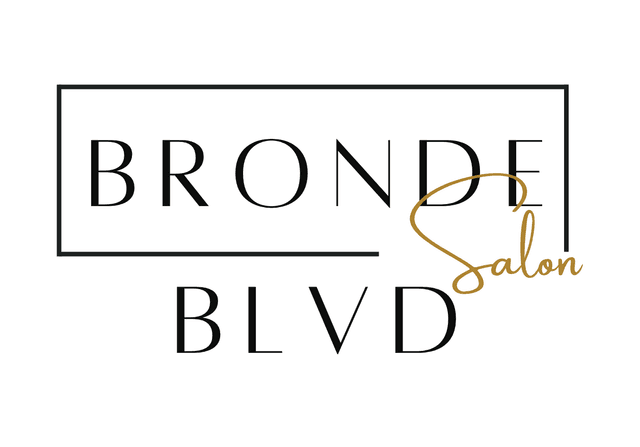Unlocking Lush Locks through Scalp Science

Ever wondered why your hair doesn’t feel as healthy as you’d like, despite using every top-rated product on the market? The secret may lie in an often-overlooked area—your scalp. Scalp health is integral to overall hair and skin wellness, yet it’s rarely discussed in depth. This blog will uncover the fascinating science behind scalp health, offering you practical tips and professional insights to achieve that enviable mane.
Understanding the Scalp
The Anatomy of the Scalp and Its Functions
The scalp is far more complex than it appears at first glance. Comprised of five layers—skin, connective tissue, galea aponeurotica, loose areolar tissue, and the pericranium—it serves several crucial functions. These layers protect your skull while supporting numerous hair follicles and sebaceous glands that produce the natural oils essential for hair health. With around 100,000 hair follicles, each person’s scalp is a busy, intricate system.
Common Scalp Issues and Their Causes
Common scalp concerns can range from mild to severe, and understanding their root causes is the first step toward effective treatment. Dandruff, characterized by flaky skin, is often caused by an overgrowth of Malassezia, a yeast that thrives on the scalp. A dry scalp, on the other hand, might result from inadequate hydration or harsh hair products stripping away natural oils. Conversely, an oily scalp can occur when sebaceous glands produce excess sebum, which can be exacerbated by hormonal changes or stress.
The Science Behind Scalp Health
The Role of Hair Follicles and Sebaceous Glands in Scalp Health
Hair follicles and sebaceous glands play pivotal roles in maintaining scalp health. Each hair follicle anchors a single hair, its growth nourished by the surrounding sebaceous gland. These glands secrete sebum, an oily substance that moisturizes both hair and scalp, preventing dryness and brittleness. Disruptions in this balanced system—whether through excessive oil production or a lack thereof—can lead to various scalp problems.
The Microbiome of the Scalp and Its Significance
Just like your gut, your scalp hosts a diverse microbiome—an ecosystem of bacteria, fungi, and mites that coexist harmoniously under healthy conditions. These microorganisms help regulate the scalp environment, protecting against pathogens and maintaining pH balance. However, disruptions in this microbiome, often due to poor hygiene or harsh chemicals, can result in conditions like dandruff and seborrheic dermatitis. A balanced scalp microbiome is essential for vibrant, healthy hair.

Maintaining a Healthy Scalp
Daily Care Routines for a Healthy Scalp
Maintaining a healthy scalp requires consistent, gentle care. Start by choosing the right shampoo and conditioner tailored to your scalp type. Opt for sulfate-free products enriched with natural ingredients. Incorporate regular scalp massages into your routine; they not only feel luxurious but also stimulate blood flow, promoting hair growth and nutrient delivery.
Tips for Preventing and Managing Common Scalp Conditions
Prevention is always better than cure. To avoid common scalp issues, avoid over-washing your hair, as it strips essential oils. Rinse thoroughly to remove all product residue, and allow your scalp to breathe by not wearing tight hairstyles too often. For those already experiencing issues, anti-dandruff shampoos containing zinc pyrithione or selenium sulfide can be effective. Natural remedies like tea tree oil also offer antimicrobial benefits.
The Connection Between Diet, Lifestyle, and Scalp Health
How Nutrition and Hydration Affect the Scalp
Your diet significantly impacts your scalp health. Nutrients like omega-3 fatty acids, zinc, and vitamins A, B, C, and E play critical roles in maintaining a healthy scalp. These nutrients promote blood circulation, support the production of sebum, and protect against oxidative stress. Additionally, staying hydrated ensures your skin, including your scalp, remains supple and resilient.
The Impact of Stress and Sleep on Scalp Condition
Chronic stress can wreak havoc on your scalp, leading to conditions such as telogen effluvium, where hair falls out prematurely. Stress hormones can disrupt the hair growth cycle, leading to thinning and shedding. Quality sleep, on the other hand, allows your body to repair and regenerate, which includes your scalp. Aim for seven to nine hours of restful sleep to keep your scalp in optimal condition.

Professional Advice and Treatments
When to Seek Professional Help for Scalp Issues
While many scalp issues can be managed with over-the-counter products and home remedies, persistent or severe conditions require professional attention. If you experience uncontrolled itching, significant hair loss, or scalp sores, consult a dermatologist. Early intervention can prevent minor issues from becoming major concerns.
Overview of Dermatological Treatments and Home Remedies
Dermatological treatments for scalp conditions range from medicated shampoos and topical creams to advanced therapies like phototherapy and PRP (Platelet-Rich Plasma) treatments. Meanwhile, home remedies like apple cider vinegar rinses and aloe vera gels can offer relief for mild symptoms. Always consult with a healthcare provider before starting any new treatment regimen.
Conclusion
Scalp health is not just about avoiding dandruff or managing oiliness; it’s a fundamental aspect of overall hair and skin wellness. By understanding the science behind your scalp and adopting consistent care routines, you can achieve not only a healthier scalp but also more vibrant hair. Remember to nourish your body with the right nutrients, manage stress effectively, and seek professional advice when needed.
Ready to elevate your scalp care routine? Join our community of beauty enthusiasts and health-conscious individuals to discover more tips, exclusive deals, and expert advice. Your journey to a healthier scalp and stunning hair starts here.
